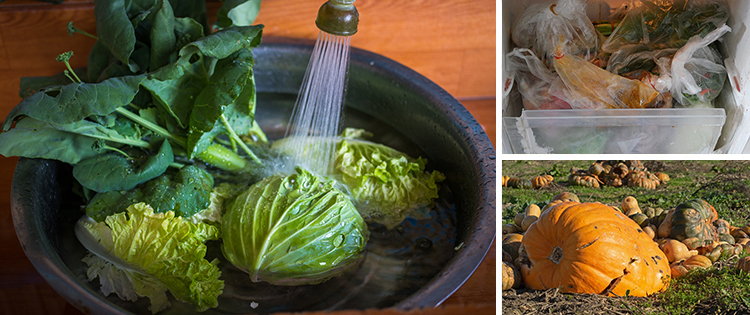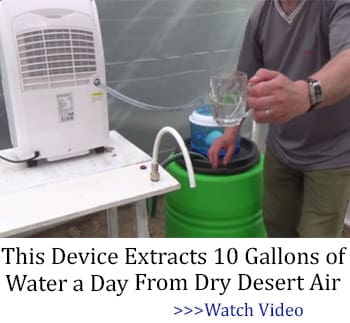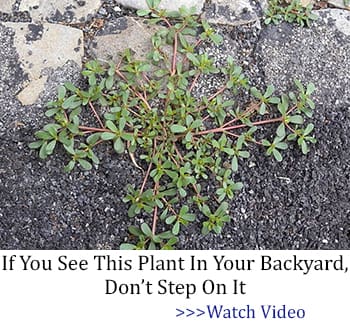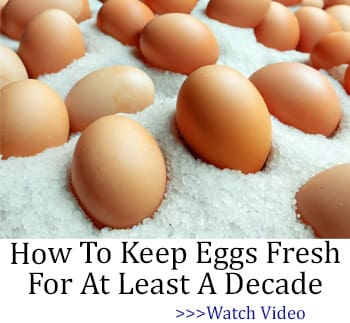You may think that there’s not more to food storage than storing your food away, wherever you can find the space. Or perhaps you are accustomed to storing your food according to how you were taught growing up. The reality is that there are certain “Do’s” and “Don’ts” when it comes to storing your food.
Let’s take a look at the 8 common storage mistakes made when storing your food.
Refrigerating The Wrong Foods
No, no. Not everything is safe in the refrigerator. Particularly during the summer months, many of us tend to throw our goods straight in there. Surely the cold will keep it from spoiling, right? Well, yes you are right in that the refrigerator will keep a lot of foods from spoiling in a very short amount of time. But a refrigerator is not always a safe bet. For certain items, refrigeration dulls the flavor and consistency of your foods. Have you ever pulled out an onion or tomato from the fridge that seemed crystallized and bland? Yup, it’s because of the refrigerator. Other foods that don’t belong in the fridge are: potatoes, garlic, melons, baked goods, jellies, syrups, and condiments, such as ketchup.
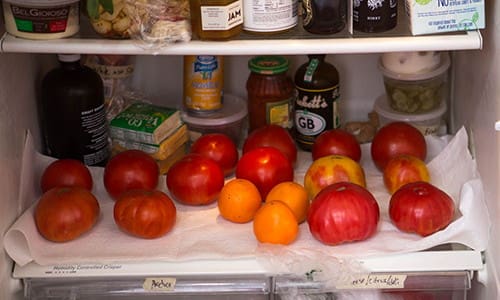
Keeping Foods Too Long
Those leftovers you stored in your refrigerator 4 days ago? Sorry to break it to you, but they can go straight to the compost. Cooked foods don’t have a very long shelf life, and to avoid food-sickness from bacteria growth, it’s recommended that leftovers are eaten between 2-3 days after the initial meal has been cooked. Keeping a dry erase marker by your refrigerator allows you to easily date your leftovers with no struggle to wipe off the date for future uses.
Related: Boost Your Soil Quality With This Compost
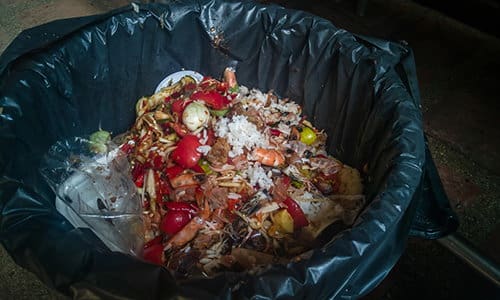
Washing Produce Before Storage
We’re not suggesting that you shouldn’t wash your produce – hear us out. Washing fruits and vegetables before putting them away is indeed a good habit, but you must be sure that these items are completely dry before storing them. Storing slightly damp items may actually make these things dirtier and more dangerous than they were before. When storing items damp they are more prone to growing bacteria and accelerating their life span. The best thing to do is wash your fruit and veg and let them air dry on a clean cotton towel or cloth. Once they are completely dry, they are safe to store away.
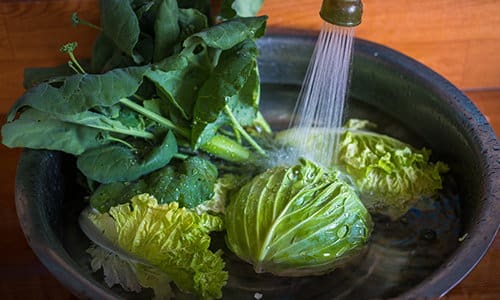
Storing Fruits & Vegetables In Warm Temperatures
Those apples sure look pretty in that bowl on your kitchen counter, but will you be eating them all before they start to rot? Believe it or not, apples belong in the fridge. Warm temperatures accelerate their release of ethylene gas which leads to sad, wrinkled apples before you can get through them all.
Other fruits and vegetables that should be kept in the refrigerator are: citrus (once they are ripe), mangoes, tubers, broccoli, cauliflower, and any leafy greens.
Are you thinking about buying a bigger fridge yet? A good tip is to keep the apples in the crisper and be sure to keep your refrigerated fruits and vegetables in separate airtight containers.
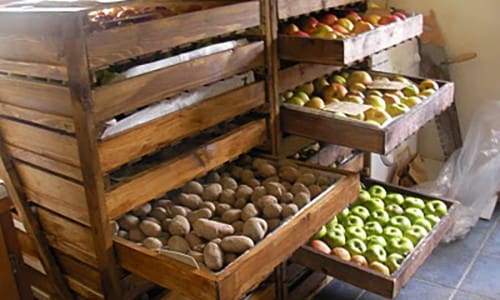
Keeping Flour & Grains In Bags
Of course, it’s convenient to buy our pantry goods in their very own sacs and paper bags, but this is not a long-term solution. Once your flours and grains make it to your home, they should be transferred into airtight containers. These containers will help to keep the quality of the flour and grains intact for several months. Airtight containers are also helpful in keeping weevils out of your goods. Once weevils make their way inside of your flour, it’s as good as gone. If you haven’t experienced having to dump a sack of precious flour due to these little critters, consider yourself lucky!
Too Much Light
These common foods tend to be given the least attention. Most likely, this is because they seem to stay good for weeks. But under the right conditions, they will keep for months! Potatoes, sweet potatoes, and squash can keep for 2-3 months when placed in cool, dark, and humid environments. A basement or washroom closet would be a happy place for these three items. Additionally, both garlic and onion call for the same environment in order to have a long shelf life, though they require more airflow than the spuds and squash.
Related: 13 Plants That Thrive In Shade
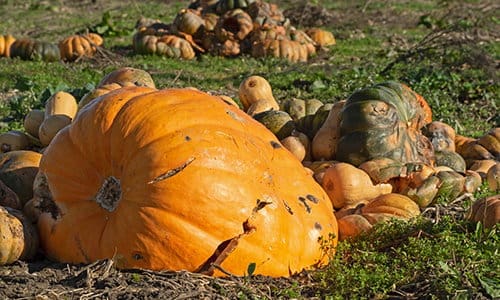
Plastic Wrapped Herbs
Surely either you or someone you know has done this one: keeping fresh herbs in plastic bags. You can keep the gross plastic-wrapped goop at bay by keeping the herbs in freshwater. Simply place herbs into a water-filled glass and place standing up-right in your fridge. The herbs will keep for 2-3 times longer when treated in this fashion. And keep an eye for any sprouted roots! Many times, if you are regularly changing out the water in the glasses, you may find that some of the stems are ready to start a family of their own. You just might have a new opportunity to plant a fresh bed of herbs.
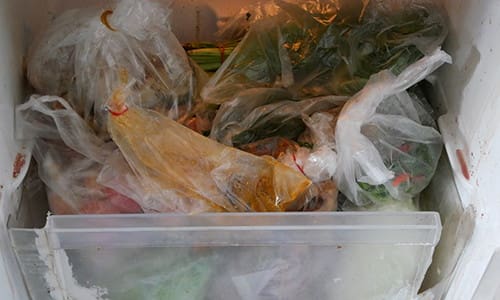
Placing New Food In The Front
You’ve seen it being done in the milk aisle of your local market, and it’s a habit you should be doing at home as well. Understandably, grocery shopping can be a massive chore in itself, so we may find ourselves putting groceries away as quickly as possible. But to avoid creating waste and letting good food go bad, your refrigerator and cupboards need to be inspected and rotated. New food should always go to the back, and old food takes the lead upfront. As an added bonus, you’ll be avoiding unsightly sights and ghastly smells. It is called ‘FIFO’, and stands for ‘First In, First Out’.
If you’re paying attention, you will likely find storage mistakes being made in your home. Taking on new routines can be tiring, especially something as second nature as storing our food. But it’s worth the effort! We all want a bang for our buck and lasting results for our big efforts in the garden. Being mindful of these 8 storage mistakes can help you achieve both.
You may also like:
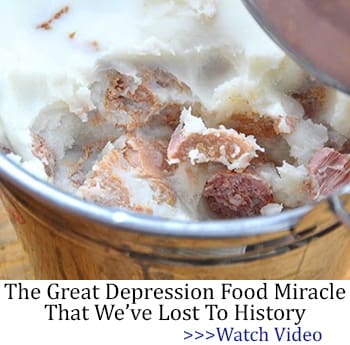 Foods You Should Never Buy And Always Make At Home
Foods You Should Never Buy And Always Make At Home
What Happens if You Take the Wrong Probiotics (Video)
